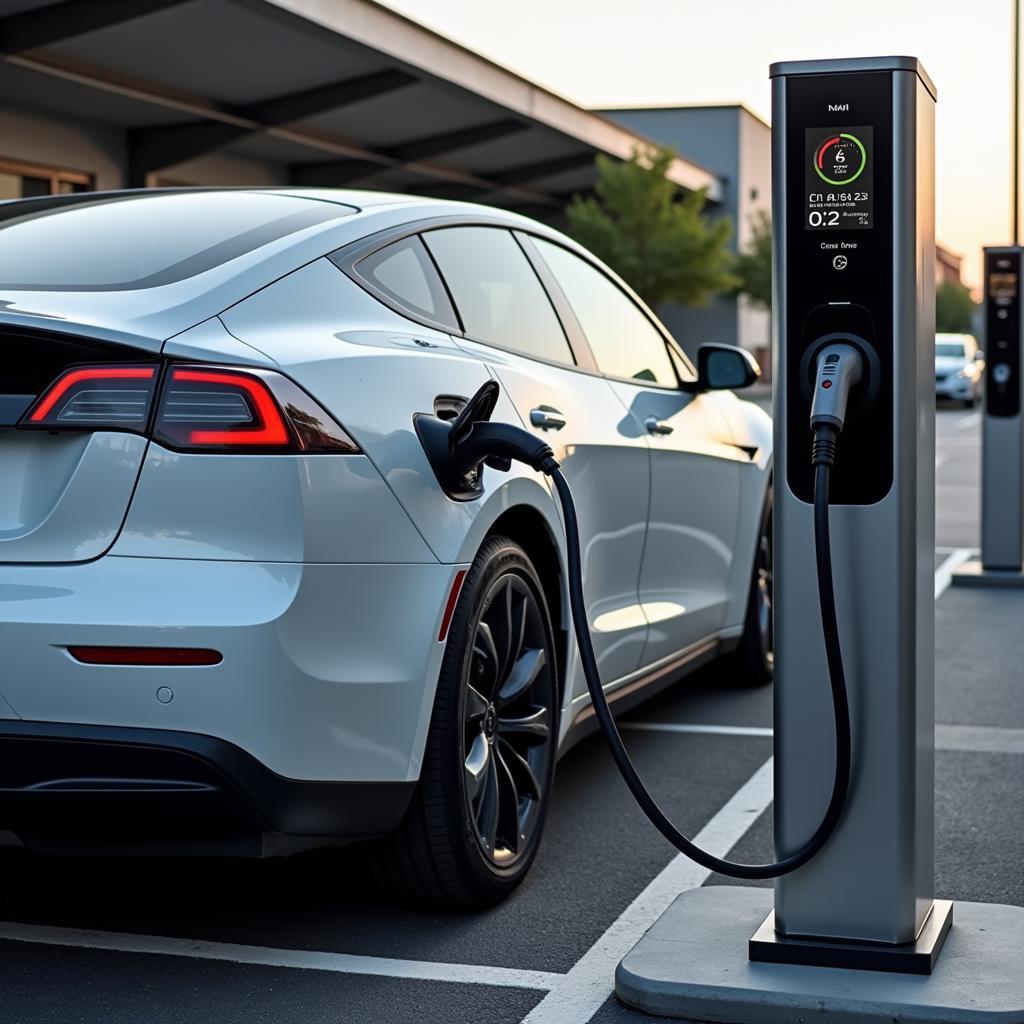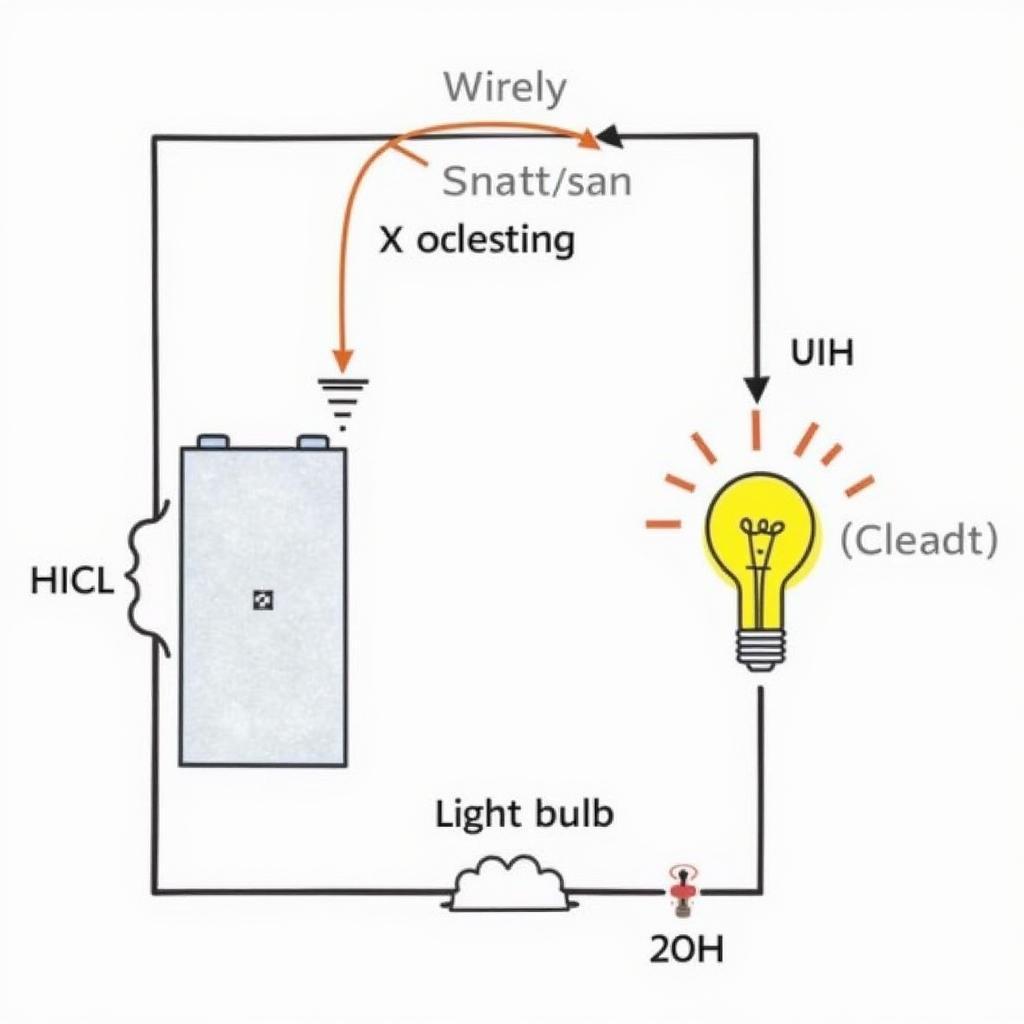The terms “electrical” and “electric” are often used interchangeably, leading to confusion. This article delves into the nuances of these two words, clarifying their distinct meanings and providing examples of their correct usage. Understanding the difference between “electrical” and “electric” is crucial for clear communication, especially in technical contexts.
Decoding “Electrical” and “Electric”
Both “electrical” and “electric” relate to electricity, but they describe different aspects. “Electrical” refers to something related to electricity in a general sense, often pertaining to systems, devices, or phenomena associated with electricity. Think of it as describing something that deals with electricity. “Electric,” on the other hand, describes something that runs on or is powered by electricity. It refers to devices or systems that directly use electricity for their operation.
For instance, an “electrical engineer” designs and works with electrical systems, while an “electric car” is powered by electricity. The subtle yet significant difference lies in the direct involvement with the electrical current.
 Electrical Engineer Working on a Circuit Board
Electrical Engineer Working on a Circuit Board
When to Use “Electrical”
“Electrical” is the appropriate term when referring to things related to the study, design, or application of electricity. Some examples include:
- Electrical engineering: A field of engineering focusing on electricity, electronics, and electromagnetism.
- Electrical system: A network of interconnected components designed to transmit and distribute electricity.
- Electrical conductivity: The ability of a material to conduct electricity.
- Electrical hazard: A dangerous situation involving electricity.
- Electrical appliance: Devices or machines that utilize electricity.
When to Use “Electric”
“Electric” describes things that directly use electricity as a power source or are themselves charged with electricity. Consider these examples:
- Electric car: A vehicle powered by an electric motor and battery.
- Electric guitar: A guitar that uses pickups to convert string vibrations into electrical signals.
- Electric field: A region around a charged object where a force is exerted on other charged objects.
- Electric shock: The sensation caused by an electric current passing through the body.
- Electric charge: A fundamental property of matter that can be positive or negative.
 Electric Car at a Charging Station
Electric Car at a Charging Station
Common Misconceptions and Clarifications
One common misconception is that “electrical” is always used with larger systems or devices, while “electric” is reserved for smaller ones. This is not entirely accurate. The size of the object is irrelevant. The key distinction is whether something is about electricity (“electrical”) or powered by electricity (“electric”).
Another frequent confusion arises with the term “electricity.” This noun refers to the flow of electric charge. It’s the energy itself, not a device or a system.
Expert Insights
Dr. Emily Carter, a renowned electrical engineer, clarifies, “Think of ‘electrical’ as the broader term encompassing the entire field of electricity, while ‘electric’ specifically refers to devices or phenomena directly utilizing electrical current.”
Professor David Miller, a physicist specializing in electromagnetism, adds, “The distinction is subtle but important. ‘Electric’ implies a direct interaction with the electric current, while ‘electrical’ refers to the general domain of electricity.”
 Diagram of a Simple Electrical Circuit
Diagram of a Simple Electrical Circuit
Conclusion
Understanding the difference between “electrical” and “electric” enhances clarity and precision in communication, especially when discussing technical subjects. Remember, “electrical” pertains to anything related to the field of electricity, while “electric” describes something that directly uses or is charged with electricity. Applying this distinction correctly ensures accurate and effective communication.
FAQ
- Is it always incorrect to use “electrical” and “electric” interchangeably? While often used interchangeably in informal contexts, using them correctly demonstrates a deeper understanding and precision in language, especially in technical fields.
- Can you give another example of when to use “electrical”? An “electrical outlet” is a good example, as it’s part of a system designed to provide electricity, but isn’t itself powered by electricity.
- Can you give another example of when to use “electric”? An “electric toothbrush” is a device directly powered by electricity.
- What about the term “electronic”? “Electronic” refers to devices that manipulate the flow of electrons in a more complex way, often involving semiconductors.
- Is there a simple way to remember the difference? Think of “electric” as something that plugs in or uses a battery.
Need more help?
For further assistance or clarification, please contact us: Phone: 0902476650, Email: [email protected]. Our address is 139 Đ. Võ Văn Kiệt, Hoà Long, Bà Rịa, Bà Rịa – Vũng Tàu, Việt Nam. We have a 24/7 customer support team.





